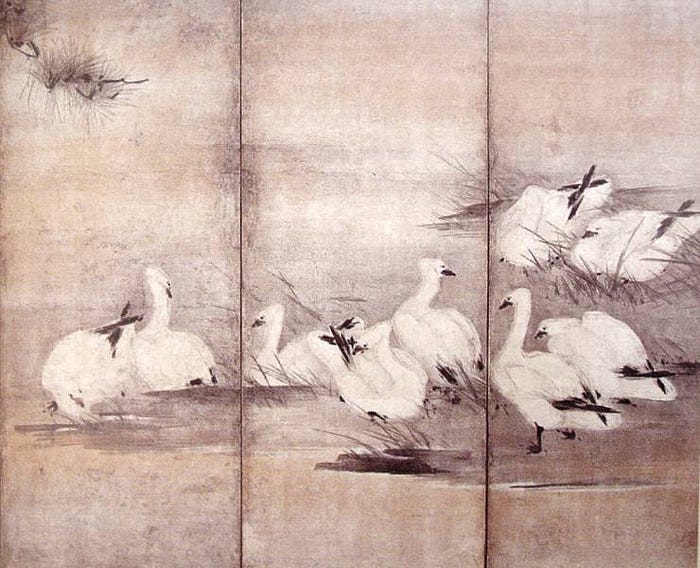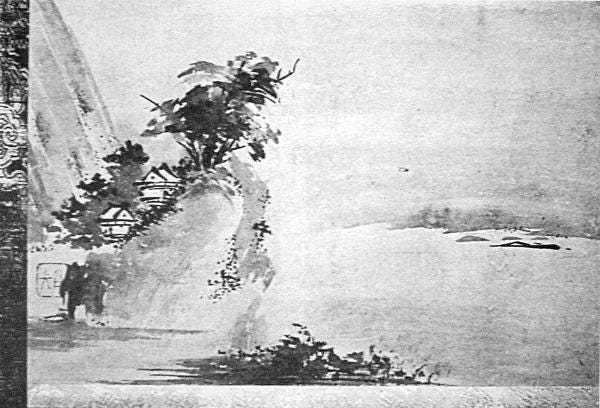A Tried And Tested Way That Makes Everything Around You Easier
Great thinkers’ advice on dealing with the many difficulties of life

Dealing with the difficulties of life is now a business. Think about it. There weren’t “life coaches” thousands of years ago. Life hacks and apps are abundant everywhere, plus businesses will provide gadgets to make life easier for a fee.
Obviously, this can be a good thing. But it does create a bias.
Namely, the modern world teaches you difficulty is an inconvenience, or something to be avoided. Maybe even conquered. After all, we’re to work smarter, not harder and everyone dreams of an easier life.
This hasn’t been lost on the free market. Science, technology, and every innovative mind in the world is in a constant battle to conquer anything difficult within our lives.
But that’s not what yesterday’s thinkers preached. They had a much different view of daily difficulties and the various trials of life. Moreover, it wasn’t negative.
Philosophers and great figures of the past even encouraged us to seek it out.
Oddly enough, within difficulty they found benefit. But more than this. Within hard things there’s a key to making your life easier. Although it isn’t apparent at first.
So, we’ll need some help from a philosopher with odd writing habits and a past president of the United States.
The Goal Of Making Life Difficult
“So only one lack remains [in our time]…the lack of difficulty. Out of love of humankind, out of despair over my awkward predicament…of being unable to make anything easier than it had already been made…I comprehended that it was my task: to make difficulties everywhere.”
— Concluding Unscientific Postscript to Philosophical Fragments, Johannes Climacus (aka Søren Kierkegaard)
As life goes, Søren Kierkegaard’s could have been rather easy. He was born to a rich family and found himself in the interesting position of never having to work. But he took another path. In fact, the quote above describes his life pretty accurately.
Although he took on the image of a “gentleman of leisure,” he created many incredible philosophical and religious texts over his fifteen year career, working endlessly. Kierkegaard even found ways to make his writing more difficult.
He wrote his philosophic works under pseudonyms. Not only this, but each false name had a unique style with a different voice. Sometimes his fake authors wrote multiple books, which Kierkegaard diligently penned in their own unique style. Talk about making difficulties everywhere.
While it wasn’t easy, it made him legendary. Although he died at only forty two, his philosophy is thought to have influenced the likes of authors Franz Kafka and J.D. Salinger, plus psychologists Viktor Frankl and Carl Rogers.
Theodore Roosevelt lived out Kierkegaard’s comment above. As a child, he was extremely sickly with severe asthma. While treatable today, doctors of Roosevelt’s day had no idea how to handle it, resorting to prescribing him coffee, cigars, and bloodletting.
However, Roosevelt’s father recommended he build up his body with exercise. He told the boy:
“Theodore you have the mind but you have not the body, and without the help of the body the mind cannot go as far as it should. I am giving you the tools, but it is up to you to make your body.”
As the younger Roosevelt grew, he threw himself into physical activity and challenges. He’d hike, weightlift, box, play tennis, and practiced jiu-jitsu in the White House. He even surveyed the Amazon River, barely making it back alive.
Roosevelt later gave a famous speech called “the strenuous life,” where he panned “ignoble ease” and praised the benefits of “toil and effort.”
Sounds good, but not for me, right? Why would a modern person need a “strenuous life,” when our days are always challenging? Well, there’s a key within the difficulty which unlocks an easier life.
But we’ll need the world’s top podcaster, psychologists at Harvard, and a samurai to shed some light on this.
The Key Hidden Within Self-Sought Difficulty
“All difficult things aid you in developing your human potential.”
— Joe Rogan, Joe Rogan Podcast#1900
In the podcast above, Joe Rogan interviews Steve-O from the Jackass TV series. The former stuntman explains how a skateboard changed his life as a young kid, through its complexity. While everyone in his neighborhood got a board, only the determined kept riding after a month.
Steve-O says the tenacity bled into everything else he did.
Rogan agrees. He mentions how he read the famous strategy guide A Book of Five Rings when he was sixteen by the philosopher and samurai Miyamoto Musashi.
In the book, Musashi often references models, pointing out what you do on a small scale can be duplicated on a large scale. In his own words:
“If you know the way broadly you will see it in everything.”
According to Rogan, he’s always applied this lesson throughout his life. Mastering anything difficult provides you with a transferable skill which can be applied to other hard things. This includes the trials of life.
But Musashi wasn’t just spouting philosophy, he spoke from experience. He grew up in an odd time. He was born to a samurai family, but peace reigned over Japan, so these warriors weren’t necessary anymore. In addition, his father and mother abandoned him.

The samurai ended up making a name for himself fighting with wooden swords, painting watercolors, and writing a classic book on strategy. He claimed all this knowledge grew from difficult lessons learned sword fighting.
Modern psychology also has a take on this.
While author Michael Easter was doing research on his book The Comfort Crisis, he asked psychologists at Harvard a question that was bothering him. Why does it feel like life is harder today when our ancestor’s lives were so much more difficult?
They told Easter our brain is designed to make comparisons, but it also adapts readily to situations. The psychologists call this phenomenon prevalence-induced concept change (PICC), and it leads to problems. Easter says:
“As we have more comforts introduced to our lives, we don’t necessarily become more satisfied with them. We just sort of lower our threshold for what we consider comfortable.”
In other words, we develop first world problems where our lives suck because the Wi-Fi is slower than usual. But we can reverse this comfort creep. Easter’s recommendation sounds much like Rogan’s: take on a difficult challenge.
The hardship will give you perspective — undoing comfort-driven PICC — enabling you to see the world through a more level set of eyes. In my opinion, I couldn’t agree more.
My Personal Experience Embracing Difficulty
Every week I put myself through a difficult mental challenge. Writing doesn’t come easy. In Steven Pressfield’s War of Art, he mentions a writer will do anything possible not to write. And that’s me.
I’m never happy with anything I do, so I come up with excuses to avoid my keyboard. Thinking up ideas is never easy either. It’d be so much easier to take a nap. Yet, here I am.
There’s something about the torture that makes me mentally sharper. It’s the same deal with exercise. Instead of an easy run on a treadmill, I jump rope, do body weight exercises, and beat a tire with a sledgehammer.
A bit too much? Definitely.
Yet like Musashi says knowing that “way” enables me to see it broadly in everything. It’s Roosevelt’s “strenuous life” in action around me. It’s what Kierkegaard hinted at in his earlier comment about “making difficulties.”
And everything mentioned is a key to a puzzle that baffles most today.
If you want a tried and tested way that makes everything around you easier, seek out difficulty.
-Originally posted on Medium 12/13/22


